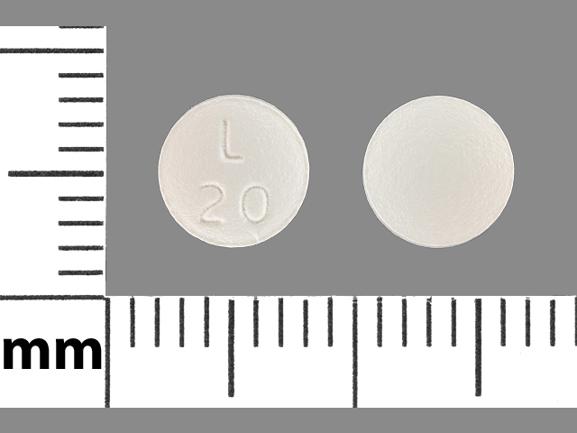Latuda and Alcohol/Food Interactions
There are 4 alcohol/food/lifestyle interactions with Latuda (lurasidone).
Lurasidone Food/Lifestyle
Major Food Interaction
Avoid consuming grapefruit or grapefruit juice during treatment with lurasidone, as it may increase blood levels of the medication. This can increase the risk of side effects such as Parkinson-like symptoms, abnormal muscle movements, seizures, high blood sugar, diabetes, high cholesterol, weight gain, sex hormone irregularities, and heat-related disorders such as heat intolerance or heat stroke. In addition, you may be more likely to experience side effects associated with low blood pressure such as dizziness, lightheadedness, headache, flushing, fainting, and heart palpitations. You should also avoid the use of alcohol while being treated with lurasidone. Alcohol can increase the nervous system and blood-pressure lowering effects of lurasidone. You may experience increased drowsiness, dizziness, difficulty concentrating, and impairment in thinking and judgment. Talk to your doctor or pharmacist if you have any questions or concerns. Lurasidone should be taken with food consisting of at least 350 calories. Avoid driving or operating hazardous machinery until you know how the medication affects you, and use caution when getting up from a sitting or lying position.
Switch to professional interaction data
Lurasidone Obesity
Moderate Potential Hazard, Moderate plausibility
atypical antipsychotic agents - hyperglycemia/diabetes
Hyperglycemia, in some cases extreme and associated with ketoacidosis or hyperosmolar coma or death, has been reported with the use of atypical antipsychotic agents. Patients with diabetes should be monitored for worsening control of blood glucose when treated with these agents. It is recommended that patients with risk factors for diabetes mellitus starting treatment with atypical antipsychotics should undergo fasting blood glucose testing at the beginning of treatment, and periodically thereafter. Any patient treated with atypical antipsychotics should be monitored for symptoms of hyperglycemia including polydipsia, polyuria, polyphagia, and weakness. Patients who develop symptoms of hyperglycemia during treatment with atypical antipsychotics should undergo fasting blood glucose testing. In some cases, hyperglycemia has resolved when treatment with these agents was discontinued; however, some patients required continuation of anti-diabetic treatment despite discontinuation of the atypical antipsychotic drug.
Lurasidone High Cholesterol (Hyperlipoproteinemia, Hypertriglyceridemia, Sitosterolemia)
Moderate Potential Hazard, Moderate plausibility
atypical antipsychotic agents - lipid alterations
Atypical antipsychotic drugs have been associated with undesirable alterations in lipid levels. While all agents in the class have been shown to produce some changes, each drug has its own specific risk profile. Before or soon after initiation of antipsychotic medications, a fasting lipid profile should be obtained at baseline and monitored periodically during treatment.
Lurasidone Obesity
Moderate Potential Hazard, Moderate plausibility
atypical antipsychotic agents - weight gain
Weight gain has been observed with atypical antipsychotic use. While all agents in the class have been shown to produce some changes, each drug has its own specific risk profile. When treating pediatric patients with atypical antipsychotic agents, weight gain should be monitored and assessed against that expected for normal growth. Monitor weight at baseline and frequently thereafter.
Switch to professional interaction data
Latuda drug interactions
There are 635 drug interactions with Latuda (lurasidone).
Latuda disease interactions
There are 13 disease interactions with Latuda (lurasidone) which include:
- suicidality
- dementia
- NMS
- aspiration
- seizure
- hematologic abnormalities
- hyperglycemia/diabetes
- hypotension
- lipid alterations
- renal impairment
- weight gain
- hyperprolactinemia
- tardive dyskinesia
More about Latuda (lurasidone)
- Latuda consumer information
- Check interactions
- Compare alternatives
- Pricing & coupons
- Reviews (853)
- Drug images
- Side effects
- Dosage information
- Patient tips
- During pregnancy
- Generic availability
- Support group
- FDA approval history
- Drug class: atypical antipsychotics
- Breastfeeding
- En español
Related treatment guides
Drug Interaction Classification
| Highly clinically significant. Avoid combinations; the risk of the interaction outweighs the benefit. | |
| Moderately clinically significant. Usually avoid combinations; use it only under special circumstances. | |
| Minimally clinically significant. Minimize risk; assess risk and consider an alternative drug, take steps to circumvent the interaction risk and/or institute a monitoring plan. | |
| No interaction information available. |
See also:
Further information
Always consult your healthcare provider to ensure the information displayed on this page applies to your personal circumstances.


